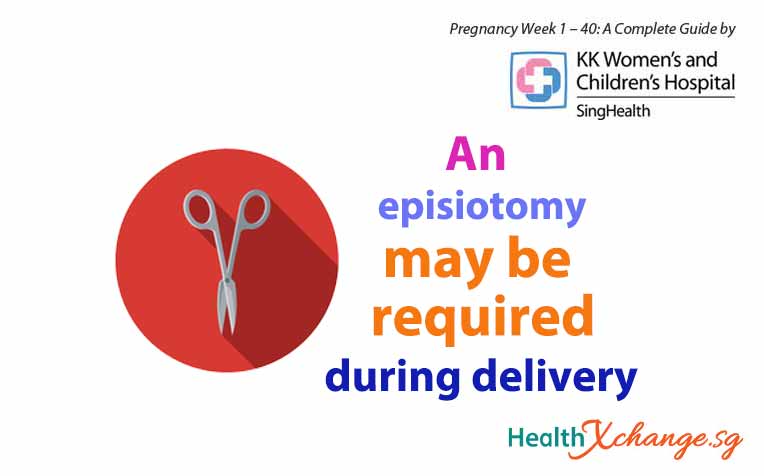
Pregnancy week 36 , women going through their first delivery may require an episiotomy – a cut that is made (sideways, usually) from the vagina to the surrounding skin, just before the baby's head emerges.
For mom
Advice for first-time delivery
Like we've discussed earlier about labour, some complications such as vaginal tears may arise. This tends to happen in first time deliveries because the skin in that area is less stretchable. To pre-empt this, sometimes women are given episiotomies just before the baby's head emerges from the vagina. This is done in order to create more space at the outlet for the emerging baby.
What is an episiotomy?
An episiotomy is a cut that is made (sideways, usually) from the vagina to the surrounding skin. The reason for cutting instead of tearing naturally is because tears can occur in many directions and cause substantial damage. If they are ragged and uneven, they are difficult to repair and take longer to heal.
Healing from an episiotomy
Most of the time, the pain from the episiotomy lasts approximately 2-3 days, and healing will be completed by 6 weeks after delivery and the stitches will dissolve. Passing of urine and stools will not affect the cut although you should try to keep the area as clean as possible. Ice packs and medications are given to reduce swelling in those who require it. Stool softeners and pain relief are also provided for your comfort.
For baby
At pregnancy week 36, your baby is about 47cm in length and 2.5kg in weight.
It's time to learn about breastfeeding
Breastfeeding is a topic to consider in lieu of your pending delivery. It is recommended that all healthy mothers consider breastfeeding their infants exclusively for the first 6 months. After that, combination with other food types is recommended to meet your infant's nutritional requirements.
Breastfeeding has benefits for both you and your newborn:
- Decreased incidence and severity of infections in newborns
- Lower risk of allergy in infants with a family history
- Lower risk of breast and ovarian cancer in breastfeeding mothers
- Quicker return to pre-pregnancy weight
Breastfeeding positions that help
Breastfeeding can be quite a tricky task. You may encounter the challenge of getting your baby to attach to the nipple correctly, while others may not get their baby to suck out sufficient milk.
Using a football hold or cradle hold and positioning your breast such that a large amount of it enters your baby's mouth usually helps counteract these problems.
Difficulty breastfeeding in the hospital? Ask for help
KK Women's and Children's Hospital (KKH) has an in-house lactation consultant during the weekdays to assist new mums who have just delivered. She can teach you proper expressing and breastfeeding techniques. Also, if the milk supply is not optimal, there are herbs and medications (such as Fenugreek and Domperidone) which are safe in breastfeeding which can help to optimise your supply.
Breastfeed your baby 8 to 10 times daily for the first 8 weeks
Regular breastfeeding helps maintain a continuous supply of milk and also prevents your breast from becoming engorged and painful. A general rule of thumb would be to breastfeed your infant 8-10 times a day for the initial 4-8 weeks.
If you have difficulty with this time commitment, you can always express their milk for later. Various milk formula and breastfeeding combinations are also possible. Should you have any questions, feel free to use the contacts below.
Breast friends for breastfeeding!
For help on breastfeeding, please call:
-
KKH Lactation Service
+65 6225 5554
(Our Call Centre Assistants will help you contact our Lactation Consultants to return your call or to arrange an appointment to see them at the Lactation Clinic) -
Breastfeeding Mothers' Support Group
+65 6339 3558 -
Joyful Parenting and Breastfeeding Hotline
+65 6488 0286
Ref: L20
Click the link for the complete listing of articles for Pregnancy Week 1 - Week 40.
Contributed by


















 Get it on Google Play
Get it on Google Play